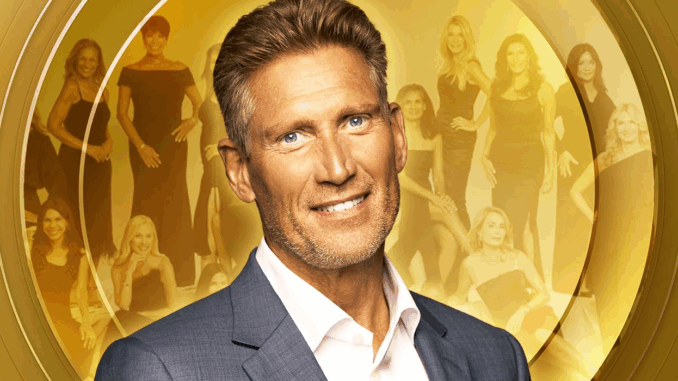
A fresh perspective on love at any age
In an era where reality TV often seems to cater to younger audiences, The Golden Bachelor broke the mold by bringing a refreshing new perspective to the table. For the first time, the franchise spotlighted older individuals looking for love—not as a gimmick, but as a heartfelt exploration of what it means to find companionship later in life. This approach opened the door to a conversation many had avoided in mainstream media: love doesn’t stop at 40, 50, or even 70.
Gerry Turner’s journey on the show became a mirror for millions of viewers, especially those in his age group. For a generation used to seeing young, vibrant contestants searching for love on dating shows, The Golden Bachelor represented a shift—a moment where romance was no longer reserved for the youth.
Why older viewers saw themselves in Gerry
From the start, Gerry’s vulnerability and honesty struck a chord with older viewers. In an age where societal expectations often prioritize youth over experience, Gerry’s openness about his grief, his desire for companionship, and his willingness to love again spoke directly to the heart of those who had lived through similar challenges.
For many, seeing Gerry, a man in his 70s, navigate love in the public eye was nothing short of revolutionary. He wasn’t just searching for someone to grow old with—he was searching for someone to build new memories with, to share in his joys, to help heal the wounds of his past.
This storyline resonated because it wasn’t about “finding love before it’s too late.” It was about redefining love on your own terms, at any stage in life.
A voice for older women in the dating world

The show didn’t just highlight an older man looking for love—it also showcased a diverse group of older women, each with her own story and experience. From Leslie’s fiery passion to Theresa’s calm wisdom, these women weren’t portrayed as “past their prime” or “second best” options. They were vibrant, engaging, and multi-dimensional women who, like Gerry, had lived full lives and were now searching for a new chapter.
For older women watching, the impact was profound. Too often, media outlets neglect or dismiss stories of women in their 50s, 60s, and 70s. The Golden Bachelor gave them a platform, showing that their love stories weren’t just worth telling—they were worth celebrating. This visibility marked a major shift in how romance in later years is portrayed.
Breaking stereotypes: Aging and desire in the spotlight
One of the most powerful aspects of The Golden Bachelor was how it shattered stereotypes about aging and desire. In a culture that often diminishes the sexual and emotional vitality of older individuals, the show proved that people in their 60s and 70s are still capable of deep romantic connections, passion, and the longing for genuine companionship.
Gerry’s chemistry with the women he connected with—especially the chemistry with Leslie and Theresa—demonstrated that desire doesn’t fade with age. Far from it. The tender moments shared between them were not just heartwarming; they were evidence that age doesn’t define one’s capacity to love or be loved.
The future of reality TV: A more inclusive approach
The Golden Bachelor is not just an anomaly within the Bachelor franchise—it’s a sign of things to come. As viewers demand more representation and diversity in media, reality TV producers can no longer ignore the growing audience of older viewers who want to see themselves reflected in the shows they love.
With The Golden Bachelor, ABC demonstrated that there’s a large, untapped market of older adults who want their stories told on a public stage. The success of this show sets a precedent for future reality TV shows that center on older contestants, showcasing their authentic experiences, challenges, and triumphs in the dating world.
As society continues to embrace aging with more acceptance and openness, the demand for authentic stories of love in later years will only grow. Shows like The Golden Bachelor are proof that reality TV has the potential to evolve into something more inclusive, diverse, and meaningful.
The golden takeaway: Love knows no age
Ultimately, the biggest takeaway from The Golden Bachelor is that love doesn’t have an expiration date. Gerry Turner’s journey was not just about finding a new partner; it was about the power of second chances, the resilience of the heart, and the possibility that love can bloom at any age.
For the older audience that tuned in, it offered a renewed sense of hope—that love is not something to chase desperately in youth but a lifelong journey that continues to surprise, inspire, and fulfill. Whether it’s through companionship, friendship, or deep connection, the show reminded everyone that love is timeless, and that every stage of life deserves to be filled with joy, passion, and the possibility of new beginnings.